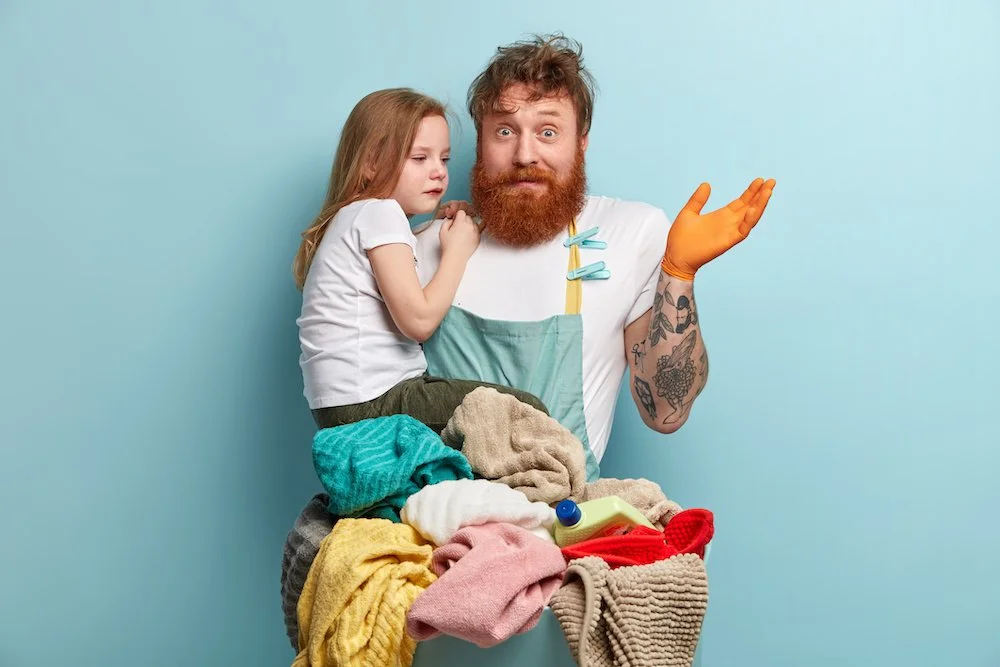Stay inspired.
You can read my weekly thoughts on child development and parent encouragement here.

Why "Trust Your Gut" Isn’t a Cliché. It's a Scientific Parenting Strategy.
Feeling overwhelmed by conflicting parenting advice? Here’s how to trust your gut, understand what “the science” really says, and make confident decisions for your complicated kid.

What’s Your Priority as a Parent?
Feeling overwhelmed by all the “shoulds”? You’re not alone. This gentle parenting reflection invites you to pause, clear the clutter, and get closer to what matters most.

Stop. Breathe.
If your nervous system is fried and your to-do list won’t quit, this is your permission slip to stop, breathe, and just be. You matter too.

Sugar, Sleep, and Aunt Linda: Why Sleep Routines Matter More Than Ever Over the Holidays
Overstimulated kids + missed bedtimes = meltdowns. Learn how to protect sleep routines during the holidays and why it’s the key to calmer, happier kids.

Permission Granted to go “Off-Script”
Feeling overwhelmed by holiday expectations? Learn how to set boundaries, create calm, and prioritize your child’s needs this season—with zero guilt.

What is Central Coherence?
Central coherence helps us make sense of social situations. Learn how differences in this skill impact communication and how to support detail-focused thinkers.

Play Is a Nutrient—Not a Nice-to-Have
Play isn't optional—it's brain food. Learn how unstructured play boosts child development, emotional growth, and executive function from toddlers to teens.

Autistic Joy
Autistic joy might not look like what you expect—but it’s real, beautiful, and worth celebrating. Here’s why it matters, and how to support it with love.

What If There’s Nothing to Fix? Gratitude as a Radical Parenting Practice
Discover how shifting from “fixing” to gratitude can transform how you parent neurodivergent kids and deepen your connection—starting today.

What’s Wrong With You?
Learn why saying “What’s wrong with you?” can harm kids—especially neurodivergent ones—and what to say instead to support their growth and self-worth.

Talking to Kids About Death is Hard. Do It Anyway.
Learn how to talk to kids about death with honesty and compassion. Understand why avoiding the topic increases fear, and help children process grief with support.

Disgust Is a Core Emotion—Let’s Help Kids Handle It
Disgust is a core emotion wired for survival. Learn why it shows up in kids, what it really means, and how to respond without shaming their reactions.

Why Do Kids Cry When Screentime Limits Are Enforced?
Learn why kids cry when screens are taken away, what their brain is really doing, and how to set screen time limits with less drama and more calm.

Your Tween is Not a Mystery
The tween years are filled with big emotions, identity shifts, and quiet confidence-building. Learn how to parent through this powerful stage.

Let’s Talk About Special Interests (And Why They’re Not Weird)
When we ditch the judgment and embrace what lights our kids up, we unlock powerful ways to connect, teach, and grow—together.

Kaleidoscope Parenting: What If Your Child Isn’t a Puzzle to Solve?
Parenting a complicated kid isn’t about fixing—it’s about noticing patterns, staying curious, and holding everything up to the light.

Why Your Child Won't Leave You Alone: The Permissive Parenting Style Trap
Permissive parenting creates clingy, demanding children. Permissive Parents may avoid conflict, but this approach can have negative effects on children.

Breaking the Authoritarian Parenting Style Cycle: From 'Because I Said So' to Connected Parenting
Authoritarian parenting creates compliance but kills independence. Break the cycle from strict rules to warmth, authoritative - authoritarian parenting styles.

Beyond Permissive vs. Strict: Why Authoritative Parenting Creates Confident Kids
Authoritative parenting combines high expectations with nurture to foster confident kids. Compare parenting styles: authoritarian - permissive - uninvolved

Why Gentle Parenting Fails With The "Pop Quiz Effect" And Without Clear Boundaries (And How to Fix It)
Gentle parenting without clear boundaries creates chaos, not connection. This parenting style needs structure to work effectively for your family.
Let’s work together